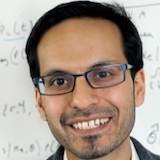About HMSP
The Helmholtz Association offers a unique match to the need for an interdisciplinary scientific marriage of the field of information security, privacy, and AI/ML with the fields of medical research, with strong synergies and existing collaborations: CISPA constitutes an ideal methodological nucleus for next-generation methods in information security, privacy, and AI/ML; and the medical Helmholtz Centers (DKFZ, DZNE, HMGU, HZU, MDC) with their comprehensive expertise in applied information processing and application-driven research constitute ideal partners for jointly developing and leverages those next-generation techniques results at scale.
All these institutions - CISPA, DKFZ, DZNE, HMGU, HZI, MDC - have committed to their close collaboration and exchange on this topic within HMSP, and to claiming and executing their de-facto lead on information security, privacy and AI research in the medical domain, both within the Helmholtz Association and beyond, that equally reflects Germany’s pioneering role on this topic of strategic importance.
Directorate of the Center (currently, representing the two founding institutions only)
Leading Scientists (currently, representing the two founding institutions only)
Participating Institutions
The CISPA Helmholtz Center for Information Security (CISPA) in Saarbrücken is one of the world’s leading research institutions in information security and privacy, with a dedicated focus on addressing the grand research challenges in security and privacy in a comprehensive and holistic manner, in particular the intersection of security and privacy with AI/machine learning. It strives for cutting-edge, often disruptive foundational research, augmented with innovative application-oriented research, corresponding technology transfer and societal outreach. Medical security and privacy, as well as foundational research in AI/machine learning have been topics of central importance for CISPA ever since its inauguration. With its methodological core competence in the areas of security, privacy and AI, CISPA assumes a central position within HMSP that, jointly with its five partners from the medical domain, aims to transfer its foundational research into an enabling technology in the medical context and beyond.
The German Research Center for Neurodegenerative Diseases (DZNE) is dedicated to researching dementia in all its facets, investigating similarities and differences of various brain diseases. The central goal is to develop new preventive and therapeutic approaches, while keeping a close relationship to clinical research, population studies and health care research. Efficient and trustworthy processing of large datasets containing sensitive biomedical information is at the core of DZNE’s research, and the HMSP was initially inaugurated by a bilateral endeavor between DZNE and CISPA.
The German Cancer Research Center (DKFZ) conducts research on the investigation of the mechanisms underlying cancer, the identification of cancer risk factors, and ultimately on trying to come up with approaches to prevent people from getting cancer in the first place. Moreover, novel approaches are being developed to make tumor diagnosis more precise and treatment of cancer patients more successful. DKFZ research is strongly supported by data-driven approaches and relies crucially on modern AI/ML technologies. A pilot project co-lead by CISPA and DKFZ on Trustworthy Federated Data Analytics is currently under review.
The Helmholtz Center for Environmental Health (HMGU) pursues the goal of developing personalized medical approaches for the prevention and therapy of major common diseases such as diabetes mellitus, allergies and lung diseases. To achieve this, it explores the interaction of genetics, environmental factors and lifestyle. HMSP moreover serves as an ideal complement to the HAICU initiative recently established at HMGU: while HMSP aims for disruptive research on AI/machine learning as well as security and privacy in general, HAICU will strive for a widespread deployment of AI/ML as an enabling technology, and it will hence immediately benefit from HMSP’s advancements.
The Helmholtz Center for Infection Research (HZI) investigate issues related to bacterial and viral pathogens, the immune system and immune defence and novel agents. The research of the HZI pursues a translational approach, in that the focus is always on the application of the insights gained. Moreover, HIZ maintains a Helmholtz Institute for Pharmaceutical Research Saarland (HIPS) in direct proximity to CISPA.
The Max-Delbrück-Center for Molecular Medicine (MDC) investigates multi-organ diseases such as heart failure, with a particular focus on the research topics of cardiovascular and metabolic diseases, cancer research, function and dysfunction of the nervous system, and molecular systems biology. MDC in particular holds the lead for the European Flagship Project LifeTime, which aims for reliably predicting the onset and trajectory of a disease. AI/ML-based techniques, complemented with trustworthy information processing are at the heart of the endeavor, and several partners of HMSP are participating in LifeTime as well.












